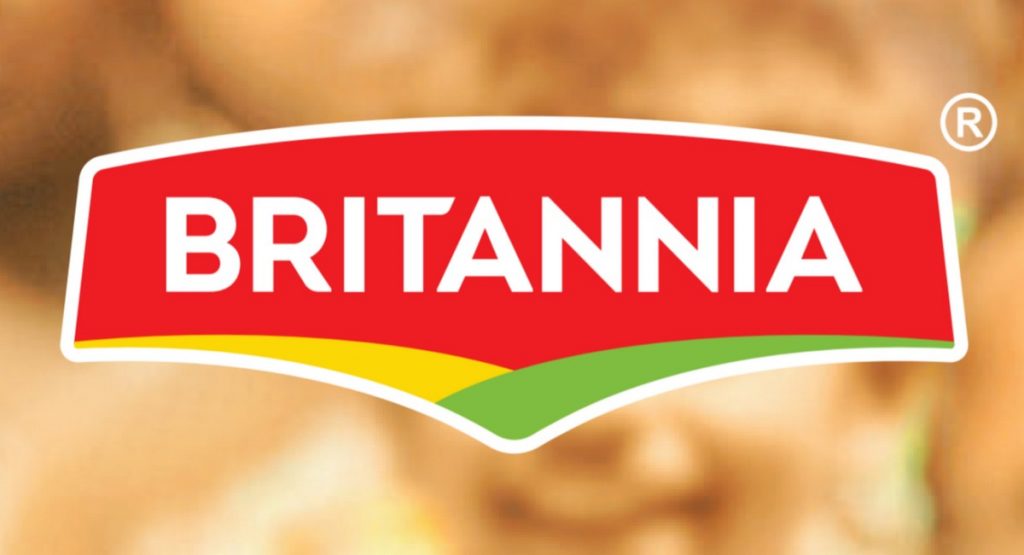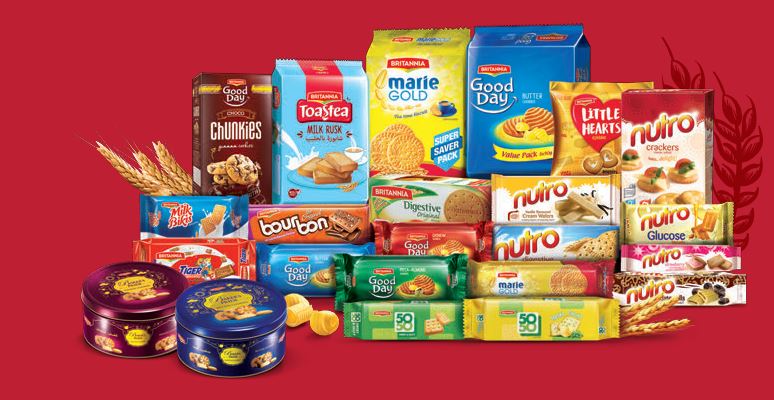Britannia Industries Limited is an Indian food and beverage company that is part of the Wadia Group, led by Nusli Wadia. The company is best known for its biscuits, but it also produces dairy products, cakes, and breads. Britannia is one of the largest biscuit manufacturers in India, with a market share of over 50%.
Britannia, an iconic brand, has been emerged as an undisputed leader in biscuit industry in India. Incorporated in 1892, in a small house in central Calcutta (now Kolkata) with an investment of merely ?250, now reaches over 50% of the Indian homes, generating revenue of more than Rs. 14,000 crores. The company has been in business for over a century and has built a loyal customer base with strong emotional connection. Core strength lies in its product portfolio like Good Day, Nutri choice, Treat, Marie Gold, Milk Bikis, Tiger, Bourbon, Nice Time, Little Hearts, etc. Let’s talk about the company’s position using the SWOT analysis that is provided below:
Table of Contents
Strengths in Britannia SWOT Analysis
1. Forte in Distribution Channel
The company has a PAN India presence and has direct access to 2.49 million retail outlets as on March 31, 2022, against 0.73 million outlets as of FY2014 end. Rural markets account for a sizeable share of the demand for biscuits in the country and the company increased its access to about 27,000 rural preferred dealers (RPDs) as on June 30, 2022, up from 7,000 RPDs as on March 31, 2015.
2. Undisputed Focus in biscuit segment
Biscuits currently contribute 80-85% of the company’s revenues while the balance is derived from other categories. As opposed to its direct rivals Nestle, ITC, Parle, etc., which aim to produce various kinds of food and beverages, Britannia has capitalised on its competence in the biscuit market.
3. Creation of a new category
The launch of an innovative Britannia Gifting segment that allowed consumers to select a Britannia Shubh Kamnaye as gift hamper, personalize it with a message & photograph and have it seamlessly delivered to their loved ones. Britannia Shubh Kamnaye Biscuits is a premium cookies segment & mainly marketed for gifting purpose, and in widely celebrated Indian festivals like Diwali, Holi, Rakshabandhan, etc
4. Lead with new-to-market concepts
Company strives to lead the segments it operates in with new-to-market innovations as per changing consumer needs and preferences. The pillars of the company’s innovation strategy include deriving inspiration from adjacent categories (like choco bakery, cheese bakery, cracker and snacking etc.), reimagining health, exploring newer flavours and leveraging current and new technologies.
5. Manufacturing & cost power
In contrast to other brands that just market and sell the product, Britannia currently manufactures 60% of its products internally and has been increasing its manufacturing capacity to accommodate continued expansion into new products/categories. This has helped to maintain costs and allowed Britannia to achieve good margins despite rising commodity prices, packaging costs, fuel prices, and transportation costs, where many costs are at 10-year highs.
6. 80:20 Growth Strategy
The company performed well during the covid crisis by following the 80:20 rule, that is the company focused on 20% of the brands like Marie Gold, Good Day, Milk Bikis & Nutri Choice, which contributes 80% of the companies revenue, were put on priority list which enabled the company to streamline its productivity and increase the efficiency of the production.
Weaknesses in Britannia SWOT analysis
1. Too much reliance on the biscuit business
Britannia’s more than 80% revenue comes from biscuit business. Although they are market leader in the same but over dependency on the same may affect their long term existence in the business. Despite consistently focusing on dairy products like milk, cheese, flavored yoghurt, etc., it is up against fierce competition from unorganised markets and industry giants like Amul.
2. Dependency on the Indian market
The company derives only 5.5% of the revenue from the global Markets. Despite continuous efforts Britannia has been not able to capture global market share. Issues like lack of differentiation in its product offerings, strong competition from well-established international food companies, cultural and regulatory barriers making it difficult for the company to establish a foothold in foreign markets.
3. Intense competition
With multiple major businesses like Parle, Sunfeast, and Priyagold as well as a large number of smaller brands, the biscuit market is quite competitive. As Britannia is unable to develop a differentiator that stands out in this competitive industry, this could have a long-term negative impact on the business.
4. Giving up on consumer surplus
Britannia brand sells identically priced goods in rural and urban locations because it doesn’t concentrate on a specific income category, Britannia may need to spend more on marketing and advertising to reach a broad range of customers. This can be an expensive proposition, and may result in lower profit margins for the company. Sometimes it misses out an opportunity to sell higher-priced products resulting in a loss of consumer surplus
Opportunities in Britannia SWOT analysis
1. Demand for low-calorie products
The good day was always a rich taste, but today the customers are aware of calories and looks for healthy cookies that are low in sugar and calories. This can give the cookie-inspired biscuit plenty of room to develop newer, healthier variations.
2. Overseas Market
Extending its business to another international market will enable the company to become a global player in food products. Currently, it is also the number 2 biscuit player in UAE with a strong contention to leadership and has a similarly strong market position in the other GCC countries.
International business, although contributing modestly at present to the company’s revenues, holds substantial potential for expansion over the medium term, with territories such as Nepal and the Middle East expected to contribute sizeably to the overall revenues going forward.
3. Use of social media marketing
Being an Indian company, Britannia can use social media to promote its products. Social media marketing can be a useful and affordable technique to reach a larger audience and enhancing a company’s reputation in the marketplace. It currently has more than 117 thousand subscribers on Youtube, more than 964 thousand followers on LinkedIN, 3 accounts with total of more than 65.8 thousand followers on twitter.
4. Croissant market
In India, croissants are still a relatively new category. It is an important category in a lot of the world’s emerging nations, though. As consumers in India are getting exposed to an increasing consumption of global food, this category has enormous potential for acceptance in the domestic market. Britannia has the chance to lead and actively promote the development of this market.
5. Diary Business
India continues to be the largest producer and consumer of dairy products in the world accounting for 22% of the global production. The organized sector contributes to just 20% of the category while 80% is still unorganized. As the dairy industry in the country matures, there is a discernible shift in consumption from plain milk to value added dairy products. It plans to make significant investments in scaling-up its back end capability through the creation of a milk collection and manufacturing infrastructure. The Company’s milk procurement in Maharashtra has been scaled-up to 36,500 Liters/day from 1450 farmers in and around Ranjangaon.
6. Untapped cream wafer segment
Wafers are a category worth Rs.7000 million that is expanding well, and Britannia has introduced the first brand with a national presence to join this market. The market has a lot of room to grow because it is so fragmented and disorganized.
Threats in Britannia SWOT analysis
1. Rising Inflation
The company’s major raw materials are wheat flour, sugar, milk and RPO. Competition and price-sensitive customers could constrain the pricing flexibility, exposing BIL’s margins to fluctuations in raw material prices. The gross margin contracted by 390 bps YoY to 38.0% in FY2022 due to the material inflation in RPO (+26% YoY), cashew (+35% YoY), laminates and corrugated boxes. The gross margin further contracted to 36.9% in Q1 FY2023.
2. Local bakery products
Many people still choose freshly baked cookies from their neighbourhood bakery over packages of ready-to-eat biscuits, which poses a serious threat to Britain. Loss of revenue and ultimately of market share could arise from this.
3. Fake products
Counterfeit products can be made to look almost identical to the genuine article, but they are often made with lower quality ingredients and may not meet the same health and safety standards as the genuine product. This can lead to consumer dissatisfaction, damage to Britannia’s brand reputation, and loss of revenue.
4. Desire for healthy biscuits
Demand for healthy biscuits is increasing due to the active lifestyle of consumers who are looking for convenient eating options. Currently, India has 64% of its population in the working age group which makes millennials the driving force behind modern consumer trends. Despite Nutrichoice’s success, more of these products are needed to keep up with the tough competition.
Conclusion
It is undoubtedly true that Britannia is doing well while concentrating on core business principles including cost efficiency, brand awareness, and a strong distribution network, as evidenced by the company’s share price. However Company has not been able to build hero product like Good Day was in some past years. The best thing about Britannia is that if they get any such, it would be extremely beneficial for the company and its stakeholders.
Liked this post? Check out the complete series on SWOT


very ggod job about britannia.. good annalysis
this is very helpful page . and the analysis has helped me alot.
This analysis help me lot thanku
Good read.
And Britannia headed to the advise of opening up African markets rather than overdependence on Indian in market.